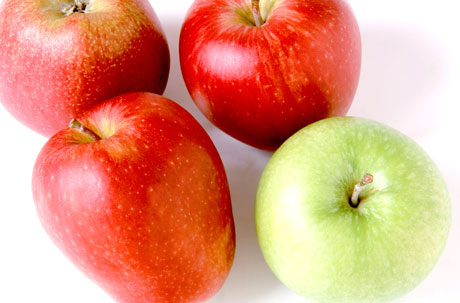Healthy Eating May Reduce the Risk of Preterm Delivery

Healthy Eating May Reduce the Risk of Preterm Delivery The University of Gothenburg
In the study, which was conducted by researchers from the University of Gothenburg, Sahlgrenska University Hospital and the Norwegian Institute of Public Health, the participants completed a scientifically evaluated questionnaire about what they had been eating and drinking since becoming pregnant.
The researchers also had access to information about the women’s general lifestyle e.g. level of education, living conditions, income, weight, physical activity, smoking habits, alcohol consumption, number of children and medical factors such as history of preterm delivery.
15 % lower risk
The results show that the group of women with the ‘healthiest’ pregnancy diet had a roughly 15 % lower risk of preterm delivery compared with those with the most unhealthy diet. The correlation remained after controlling for ten other known risk factors for preterm delivery.
‘Pregnant women have many reasons to choose a healthy diet with lots of vegetables, fruit, whole grain products and some types of fish, but this is the first time we can statistically link healthy eating habits to reduced risk of preterm delivery,’ says Linda Englund-Ögge, researcher at the Sahlgrenska Academy, University of Gothenburg.
Associated with complications
Preterm delivery, defined as spontaneous or induced delivery before the end of gestational week 37, can be associated with acute and long-term complications and is a major problem in modern maternity care. Measures to prevent preterm delivery are therefore of high priority.
Should this lead to revised dietary recommendations for pregnant women?
‘No, and it is not harmful to occasionally eat something unhealthy. But our study shows that the dietary recommendations given to pregnant women are important,’ says Englund-Ögge:
‘Dietary studies can be very complex. Any given food item may contain a wide range of substances and is usually consumed together with other foods. This makes it difficult to find out its exact effects of one single food. We show that there is a statistically established link between a healthy diet and reduced risk of preterm delivery, but our study wasn’t designed to identify any underlying mechanisms.
Encourage healthy eating habits
Englund-Ögge says that studies of the overall dietary pattern and the total quality of the foods consumed are important complements to coming studies of how single food items affect the risk of preterm delivery. The researchers are hoping that the study will inspire doctors, midwives and others who work with pregnant women to encourage healthy eating habits.
The title of the article is Maternal dietary patterns and preterm delivery – results from large prospective cohort study. Date of publication in BMJ: 4 March.
Link to the article: http://www.bmj.com/cgi/doi/10.1136/bmj.g1446
ABOUT THE STUDY
The researchers used a type of analysis that considers how different food items are interrelated. This is a technique where a computer searches for foods that co-vary with each other. Each woman is assigned a score for how strongly she adheres to the three identified dietary patterns:
‘Prudent’: High consumption of boiled and raw vegetables, fruits, berries, whole grain products (bread, cereal), oils for cooking, yoghurt, dried fruit, nuts, water as beverage etc.
‘Western’: Salty and sweet snacks, French Fries, processed meat products, sugary beverages, cookies, ketchup, buns etc.
‘Traditional’: High consumption of fish products (for example fish balls and fish burgers), lean fish (for example cod and haddock), boiled potatoes, gravy, margarine, low-fat milk, cooked vegetables etc.
Contact:
Linda Englund-Ögge, doctoral student at the Sahlgrenska Academy, University of Gothenburg
Tel.: +46 (0)733 421 201
Mobile: +46 (0)733 421 201
E-mail: linda.englund-ogge@vgregion.se
http://sahlgrenska.gu.se/english/news_and_events/news/News_Detail/healthy-eating…
Media Contact
All latest news from the category: Health and Medicine
This subject area encompasses research and studies in the field of human medicine.
Among the wide-ranging list of topics covered here are anesthesiology, anatomy, surgery, human genetics, hygiene and environmental medicine, internal medicine, neurology, pharmacology, physiology, urology and dental medicine.
Newest articles

Bringing bio-inspired robots to life
Nebraska researcher Eric Markvicka gets NSF CAREER Award to pursue manufacture of novel materials for soft robotics and stretchable electronics. Engineers are increasingly eager to develop robots that mimic the…

Bella moths use poison to attract mates
Scientists are closer to finding out how. Pyrrolizidine alkaloids are as bitter and toxic as they are hard to pronounce. They’re produced by several different types of plants and are…

AI tool creates ‘synthetic’ images of cells
…for enhanced microscopy analysis. Observing individual cells through microscopes can reveal a range of important cell biological phenomena that frequently play a role in human diseases, but the process of…





















